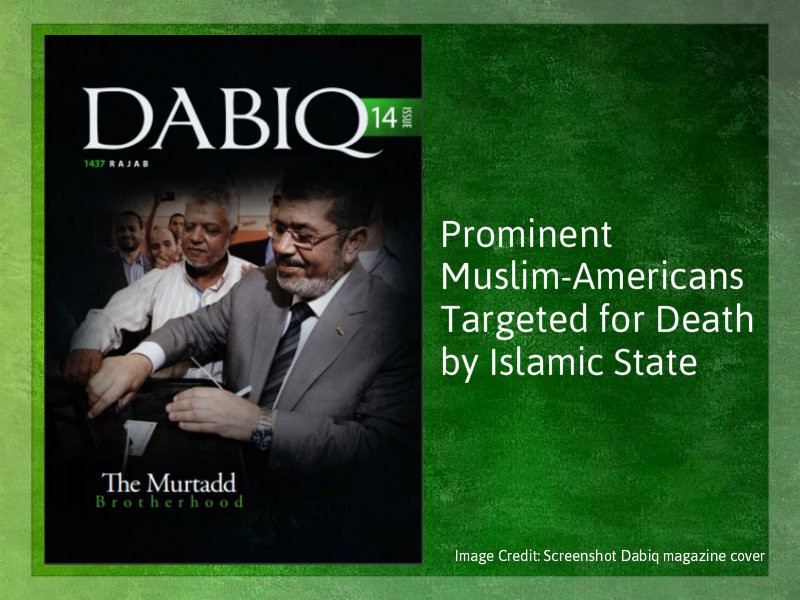ISIS Threatens Prominent Muslim-Americans in Online Magazine
A prominent scholar of Islam from southeast Michigan is among 10 Muslim-American leaders targeted for death by ISIS.

Shaykh Hisham Kabbani, 71, of Fenton, a moderate Muslim who has spoken for years against Islamic extremism, has been targeted for death by ISIS in an online magazine for allegedly straying from his faith.
The article in Dabiq, titled “Kill the Imams Kufr in the West,” said Shaykh Muhammad Hisham Kabbani is “quick to ally with any (disbeliever) who will allow them to spread their message and take the wealth of ignorant people to pay off their extravagance.”
Dabiq is the the Islamic State’s English-language online magazine. “Kufr” refers to any religion outside of Islam.
The article also made death threats against nine other Muslim-Americans it said are "apostates" and "crusaders" who have deviated from Islam.
The others include former Michigan residents U.S. Rep. Keith Ellison, a Minnesota Democrat, and a top aide to Hillary Clinton, Huma Abedin; Rashad Hussain, former U.S. envoy to the Organization of Islamic Cooperation; Mohamed Elibiary of Texas, a former adviser Homeland Security Advisory Council and Muslim Brotherhood sympathizer; and Arif Alikhan, who has served in various public and private sector law enforcement and homeland security posts.
Addtionally, seven Muslim leaders in the United Kingdom, two living in Canada and one living in Australia were targeted in the magazine.
The FBI’s Detroit office is aware of the threats, according to spokeswoman Jill Wasburn, who spoke with the Detroit Free Press, but declined to elaborate further.
Nihad Awad, cofounder and national executive director of the Council on American-Islamic Relations, said in a statement:
"The best response to such threats is to continue challenging extremism, whether it is espoused by organizations like ISIS or by Islamophobes who seek to demonize Islam based on that group's brutality. When extremists of all stripes attack our efforts to promote tolerance and mutual understanding, we know our work is having a positive impact.”
Awad was pictured in the article, but was not specifically mentioned.
Kabbani, a Sufi Muslim leader who was born in Lebanon and moved to the United States in 1991, was criticized in the magazine for promoting a peaceful, rather than violent version of jihad. He founded and leads the Fenton-based Islamic Supreme Council of America.
He has opened 23 Sufi mosques in the United States and Canada, has written about a dozen books on Islam and travels frequently to speak against Islamic extremism, according to a biography on his website.
Kabbani, who is known worldwide for his views on religion, rose to national prominence in the late 1990s when he said many American mosques were led by extremists. In a speech to the State Department in 1999, Kabbani warned of the growing threat to national security posed Islamic extremism, and he has condemned other Islamic leaders for failing to speak out against it.
Invited by the Bush White House to attend a prayer service at the National Cathedral in the days following the Sept. 11, 2001, terror attacks, he has publicly asked Arabs and Muslims to come forward with information that may help the government’s anti-terror investigations.
He is described on his Facebook page as an advocate for “an understanding of Islam described by his supporters as fundamentally based on peace, tolerance, respect and love.”
No comments:
Post a Comment
Thanks for commenting. Your comments are needed for helping to improve the discussion.